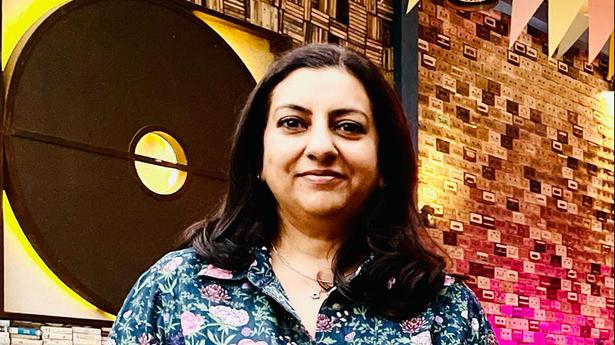
‘There were no homosexual characters in novels of the time,’ says Sudha G. Tilak, translator of Hungry Humans
The Hindu
Sudha G. Tilak talks about translating Karichan Kunju’s Pasitha Manidam, which is said to be the first Tamil novel with openly gay characters
Karichan Kunju, a writer of many short stories, novellas and plays, and an underrated but important Tamil literary figure, wrote his only novel Pasitha Manidam in 1978. Its English version titled Hungry Humans, translated by journalist Sudha G. Tilak, does what is expected of every good translation — it releases the book to a larger and newer critical reception. Kamal Haasan describes the book as the “pioneering novel that started transgressive fiction in Tamil literature” in the advance praise for the book. Set in Kumbakonam, it is also a commentary on the decline of the Brahminical community in a changing world.
ALSO READ: Kumbakonam is a redoubtable hub of modern Tamil literature
The hero, Ganesan, is a leper. After his father, a wandering minstrel who had taken to stealing in the last desperate days of his life, dies, an orphaned Ganesan inherits both poverty and the traditional wisdom of the body-soul duality. The town and the characters are mere specifics here. The story is about the conundrum called the human being.
Tilak talks about Kunju, his unflattering realism, and the challenges of translation in this interview. Edited excerpts:
The selling point of this book is that it features gay characters for the first time in Tamil fiction. And yet homosexuality is a small part of the novel and is represented more as an exploitative perversion. Can you comment?
Tamil critics did not call homosexuality Pasitha Manidam’s ‘selling point’ but noted that openly gay characters are introduced here for the first time in modern Tamil literature. The novel is peopled with trans men, autistic adults and children, reckless, ambitious men — probably familiar characters from other novels. However, gay characters like Singam Rauth stand out because readers had not read about homosexual characters in novels of that time.
Rauth and his ilk are compelled to lead double lives, furtively seeking underage partners outside their socially-acceptable heterosexual unions, while Ganesan’s one-time neighbour Kitta can be blatantly sexually exploitative as a cis male.













